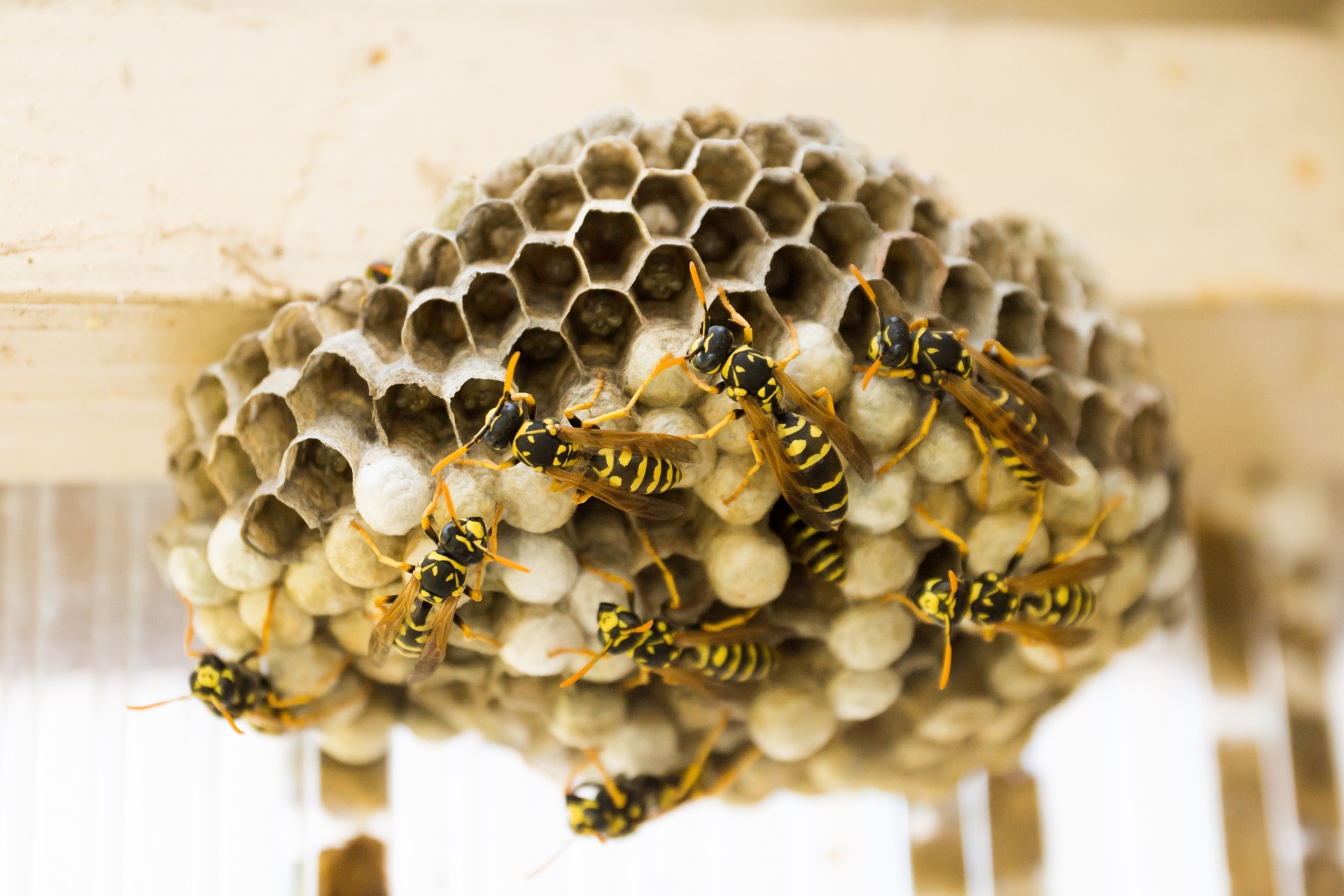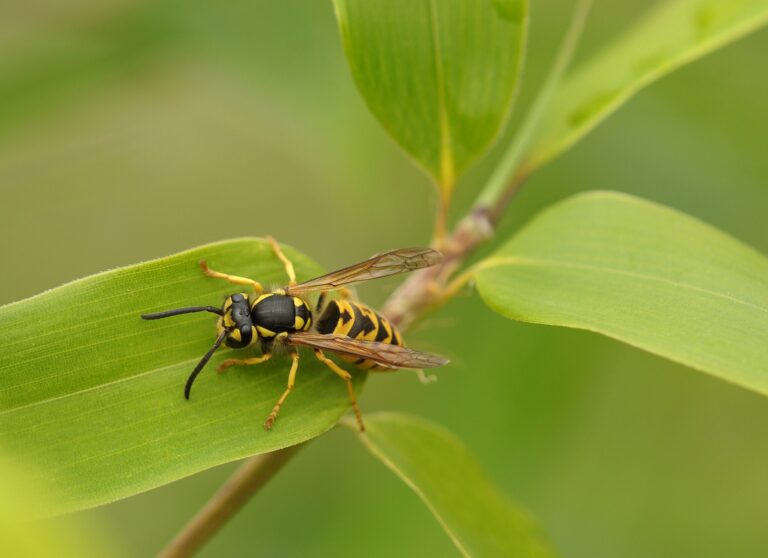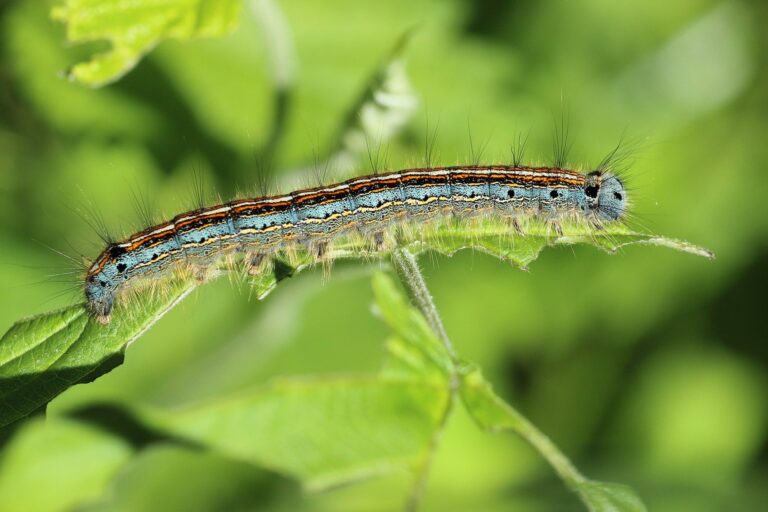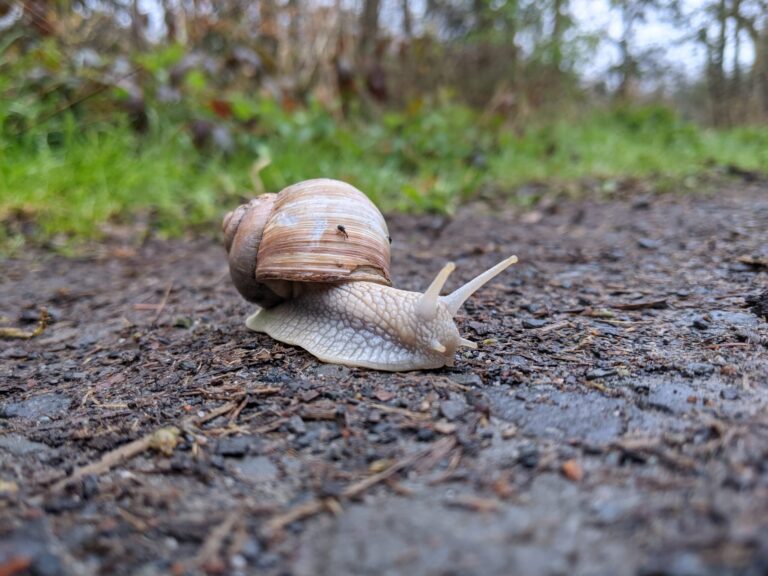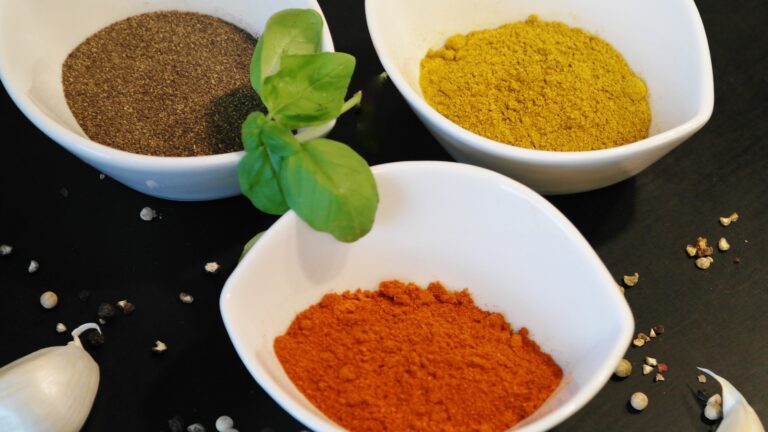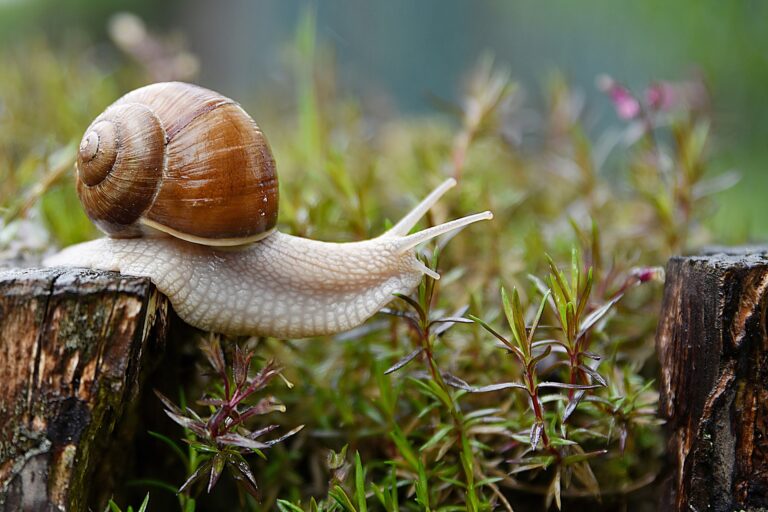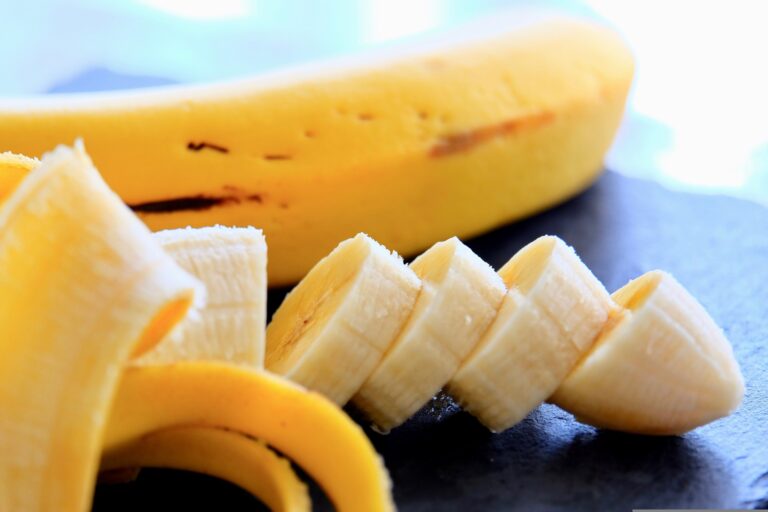What Smells Do Wasps Hate? Wasps are one of the most hated insects by human beings because they sting, and they do so with relative frequency.
And while stings can be painful and sometimes even dangerous, wasps are an important part of the ecosystem, since they feed on other pests like aphids and caterpillars that eat garden plants and crops.
In fact, some people actually encourage wasps to build nests near their homes by providing them with little beehives or wooden boxes stuffed with old rags or leaves.
In this article, we have listed the smells that repel wasps so that you can protect yourself, your home, and your loved ones from being stung by these flying annoyances.
What Smells Do Wasps Love?
Wasps are attracted to strong sweet smells, and much like many other insects they will be drawn to rotting fruit. They also enjoy the smell of fresh cut grass, citrus fruits, and honeysuckle.
Avoid these scents if you want to keep wasps away from your home. Citrus smells can attract them, so avoid having any oranges or lemons laying around or peeling them in the house.
Honeysuckle is another plant that attracts these pests, so make sure not to plant any where near a window. Keeping flowers inside containers is another great way to stop them coming in through open windows as well.
What Smells Do Wasps Hate?
The answer is pretty simple: they don’t like the smell of anything that smells like food. However, wasps do not like the scent of things such as ammonia or lemon juice because they are too strong for them.
So if you want to keep wasps away from your house, try spraying it with a mixture of water and liquid dish soap (about one cup) mixed in with half a cup of ammonia and a few drops of lemon juice. This will create an odor that most wasps can’t stand!
Here are some scets you cn use to deter wasps from your garden.
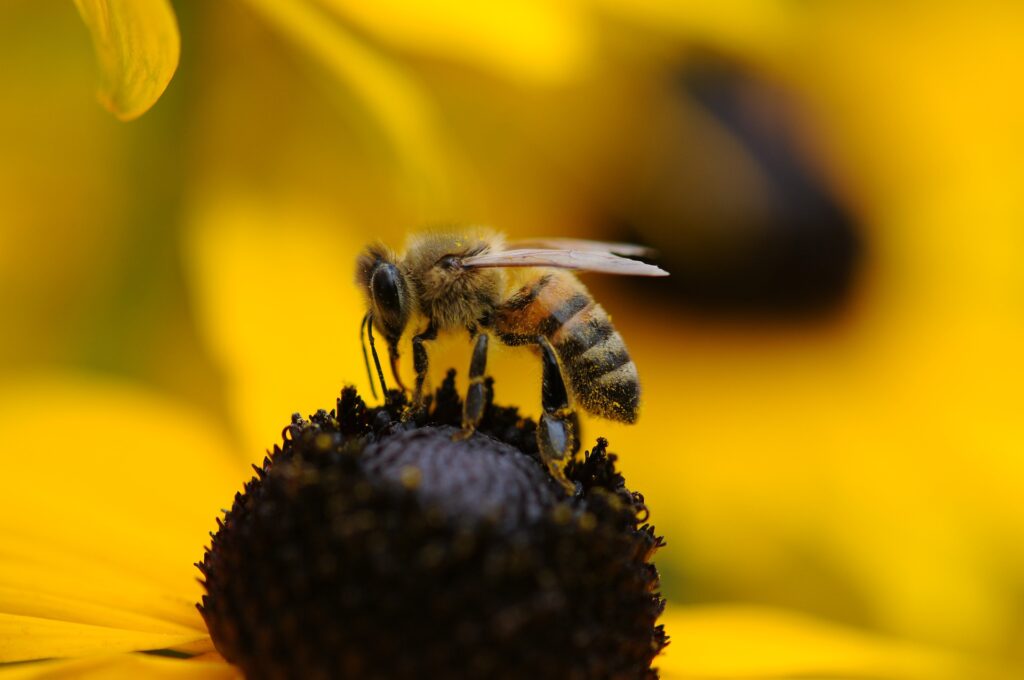
Peppermint Oil
Wasp deterrents come in a variety of forms, but the most popular is peppermint oil. The smell of peppermint oil is so unappealing to wasps that they will avoid it at all costs.
To make a homemade wasp deterrent, simply add a few drops of peppermint essential oil to water and spray the mixture near your entryways or doors.
You can also place a cotton ball dipped in peppermint oil inside an old jar lid on top of your doorframe for an easy DIY wasp trap!
Lemon grass
A natural way to help deter wasps is to use a lemongrass plant. The smell is so strong that it will make the wasp want to stay away.
However, if you don’t have a lemongrass plant, you can also make an oil out of it and rub it on your skin or mix it with water in a spray bottle.
You can also plant dill near your house because the smell will repel them too. There are many other plants that do this, but this seems to be popular choice among gardeners.
If you decide not to try planting anything around your home then keep in mind that there are other ways for you to protect yourself from wasps such as keeping garbage cans closed tight and not leaving pet food outside for any extended period of time.
Herbs
Whether it’s outside or inside, there are herbs and essential oils that will help keep them away. Some of these plants are basil, catnip, eucalyptus, lavender, mint, thyme and yarrow.
They don’t like any strong scent because it confuses their senses. It’s best to plant them near the area where they are flying so they can get a good whiff of the herb and keep moving on their way.
Make sure you give it time to grow as well. If not, then this won’t work. Be aware that some people find these plants harmful if they come into contact with them and others don’t. Read up on the different properties before planting anything new around your home.
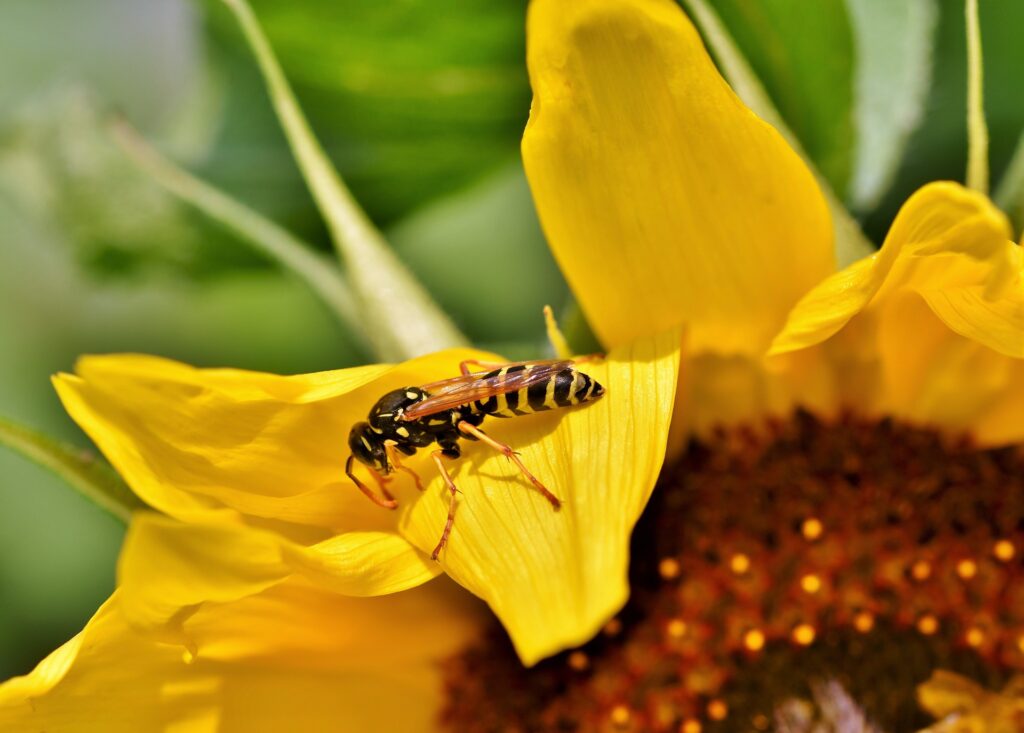
Geraniums
Wasps hate the smell of geraniums, but not so much that they avoid it altogether. You can make a homemade wasp repellent by filling a spray bottle with water and adding a few drops of geranium oil to it.
The smell of the geraniums will repel the wasps while still being pleasant to humans. Be sure to shake the bottle before spraying as geranium oil separates out of the water over time.
Geranium oil is also found in many commercially available wasp sprays and you can always ask your doctor if you’re allergic to any ingredients if you want to buy a store-bought product.
Bay leaves
Bay leaves are a natural way to keep wasps away. They are inexpensive, easy to find, and safe for humans, animals and the environment. For people with sensitive skin or allergies, they have no downside.
Here’s how to use bay leaves in your garden
- Tear up four or five fresh bay leaves (or dry ones) into small pieces
- Sprinkle them around the perimeter of your property.
- Bay leaves can also be used inside. Place them on windowsills, doorways and corners where flies congregate.
Know More About Do Foxes Hibernate?
Summing Up!
Wasps can be a real nuisance to humans. They are often territorial, so one wasp will attack anything that enters its territory.
The best way to avoid wasps is to not let them know you’re there, so wear something that blends in with the natural surroundings and keep your movements slow and steady.
However, if you do find yourself trapped in a wasp’s territory, it may help to arm yourself with some knowledge about what they hate!
One of the most effective ways to repel wasps is by using peppermint oil, which smells like rotting flesh from their perspective.
Other things that make for good repellents are lemon eucalyptus oil and lavender oil, which have a strong scent. Citronella candles also have this property as well as any fragrances with plant oils in them such as grapefruit or lemongrass oils.
If all else fails, try a little hairspray or raid insecticide spray on your clothes or in the garden – these don’t smell like anything at all but they contain substances poisonous to insects like wasps and mosquitoes!
Meet Tomas Clayton, a seasoned plant gardener who has been passionate about horticulture since he was a child. Tomas John developed a love for the natural world and a strong appreciation for the beauty of plants while growing up on a farm.

